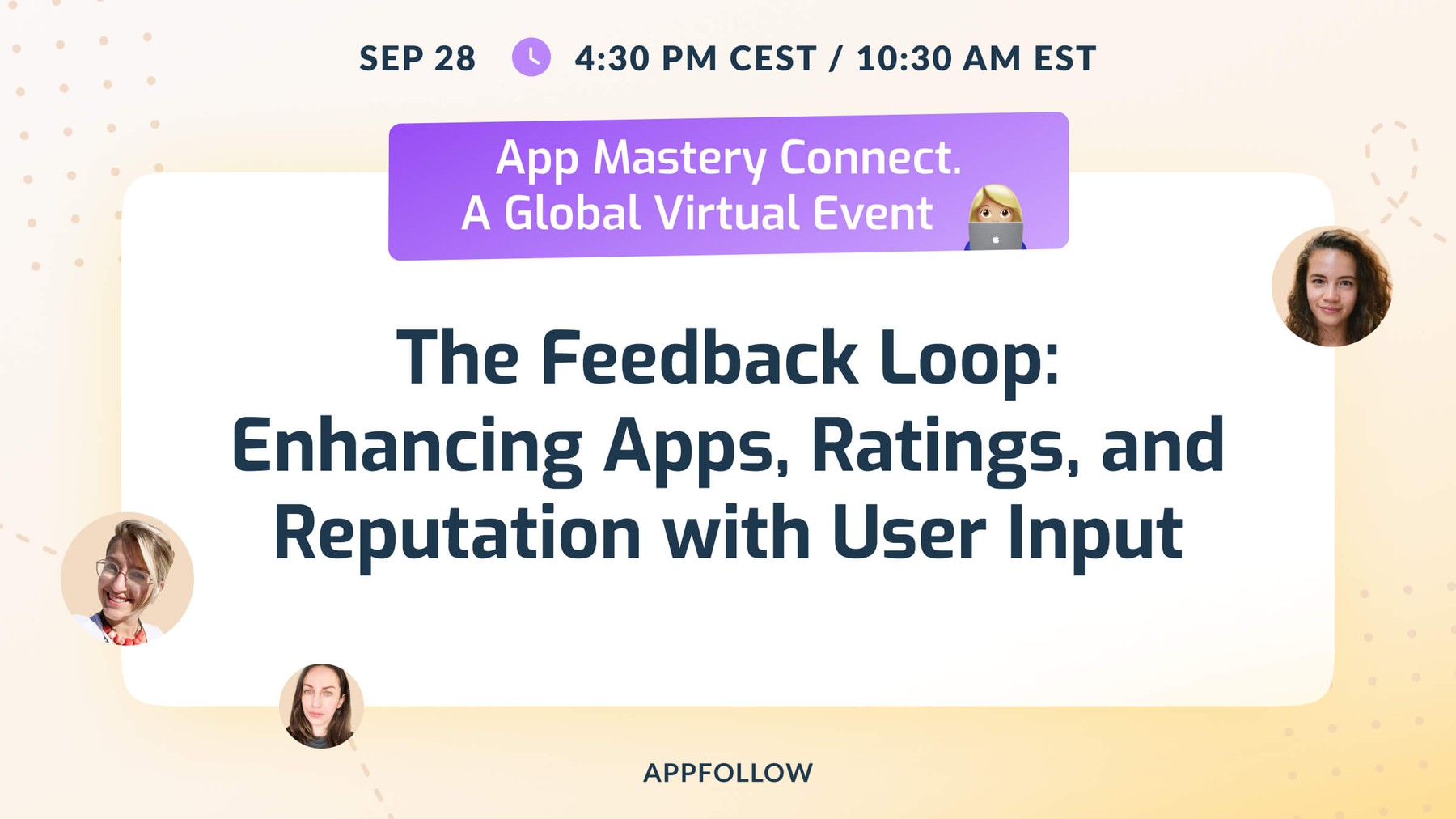Why privacy-focused app marketing is the buzzword of 2024?

Table of Content:
15 years ago, did you think your mobile phone would become the epicenter of all personal information? Technology has rapidly advanced in less than 2 decades and we live our lives through a device that fits into the palms of our hands. Banking information, business contacts, health details, project plans, asset management, entertainment requirements, and travel needs - the smartphone is integral to every move we make and every desire we realize.
In this context, data security becomes the key focus of the consumer. And sometimes, the customer is right. That brings us into a new age of mobile advertising, where privacy-focused app marketing is a key business development strategy to build, explore, and succeed in.
Why is the hype around privacy-focused app marketing amplifying?
Consumer awareness around privacy
Around the 2010s, smartphones started gathering more and more user data. The consumers naturally wondered where their data goes, and how it is utilized for advertising purposes. The number of apps on our phones increased, and with that consumer demand rose to have more control of their personal device data.
That’s where privacy laws like the General Data Protection Regulation (GDPR) and the California Consumer Privacy Act (CCPA) come into being, to ensure the playing field is leveled and users can now decide how their data should be utilized.
It’s not just the governments who are taking user privacy seriously. Apple’s release of App Tracking Transparency (ATT) and Google’s awaited Privacy Sandbox for Android are paving the path for a consumer-oriented, privacy-first app marketing future.
Consumer expectations for future smartphones
The ATT-enabled iOS14.5 and above versions are now installed on 94% of Apple devices that access the App Store. This trend showcases the user preference for secure devices. Of Android users considering a switch to iOS, approximately 49% are making the switch since they perceive iOS as a more secure smartphone operating system.
The iOS 16 feature of ‘Lockdown Mode’ which protects devices from mercenary spyware, was one of the key reasons for at least 33% of Android users to make the switch to iOS. About 76% of users believe the onus lies on businesses to protect their data.

Privacy-focused app marketing and how to go about it for 2024
Privacy-focused app marketing | Traditional app marketing |
Oriented around the user’s self-initiative to discover an app | Oriented around the introduction of an app to a prospective user; driven by push marketing |
Utilizes the search intent of the user to target | Utilizes the user’s preference of media channels (email, socials, in-app ads) to target |
Direct marketing within the App Store or Play Store ecosystem | Drive traffic to the App Store or Play Store from external sources |
The audience pool is niche, high-quality, high-intent | The audience pool is targeted using spray-and-pray strategies to filter out high-quality, high-intent segments |
Shorter impression to download cycle | Longer impression to download cycle |
As consumers enjoy more independence over their data-tracking, app marketers will have to be present when the user is showing a high intent to download an app - and that usually occurs when they access the App Store or Play Store. However, navigating the maze of privacy-focused app marketing is not as easy as it sounds.
signup_boosting
Challenges around privacy-first app marketing and how to troubleshoot them?
Challenge 1: Finding the right users to target
In a privacy-first ecosystem, app marketers have to rely on aggregate data of impressions, clicks, and downloads to get clarity on their performance campaigns. They miss out on understanding the various personas of their audience pool.
Therefore, precision targeting becomes a challenge. The mobile marketing ecosystem witnessed this challenge when App Tracking Transparency (ATT) was introduced with iOS 14.5, wherein users can opt out of sharing their information with advertisers.
How to go around it?
Within the App Store or Play Store ecosystem, the keywords are a gateway to the audience’s soul. Embarking on search intent marketing can be a great way to navigate around a privacy-first ecosystem.
Apple Search Ads is one such platform that blends user privacy and performance-oriented search intent marketing. Search queries give app marketers a concrete idea of how users search for their brand, their primary competitor, other players, or unique deals in their category.
Resolving the puzzle:
Grouping these search queries under similar themes shows which user segments are the most relevant for the brand’s privacy-focused app marketing campaigns.
Prioritize the keyword groups based on the app’s USPs (mix of brand and category keywords), relevancy to resolving user problems (mix of category and seasonal keywords), and competitor differentiators (mix of competitor and seasonal keywords).

Challenge 2: Serving the right message to the right user
If the app marketer does not know who will see their ad, then how do they ensure the right messages are communicated to the right users? In the post-install phase, there are multiple ways to engage like interactive content, gamification, and push notifications.
This content can be customized using first-party in-app data. However, in the absence of granular conversion analytics for the pre-install phase, it does get difficult to personalize.
How to go around it?
Contextual advertising. One way is to ensure the ad is placed to the right person based on the user’s search history and App Store or Play Store download history. The other way is to build the communication around the search queries.
For this long-tail and specific keywords like calorie tracking apps for asian diet, trendy clothes for plus-sized women, gaming apps that don’t need wifi, travel booking apps for budget hotels, etc. give a clear idea of what your audience looks like, what are their unique problems, and how your app fits into their requirements.
Resolving the puzzle:
Google Custom Listings and App Store Custom Product Pages help with contextualizing ad placements to a high-intent user. Both are alternative variations to the default app product page and allow app marketers the opportunity to drive personalized communications. In the Play Store, Custom Listings appear in curated app suggestions for the user.
In the App Store, Custom Product Pages are linked to Today Tab ad placements and Search Results Page ads. The Today Tab ad placement is guided by search and download history. The Search Results Page ads work on keyword match types.
Therefore, a wide range of new and returning users can be targeted. Custom Product Pages (CPP) linked to Today Tab ads are best utilized for special announcements, product/service/feature launches, and seasonal in-app events. Since this placement is right on the home screen of the App Store, it works quite well for branding and retargeting campaigns.
The Search Results Page ads appear at the end of the app download journey and are best suited for category, competitor, and discovery campaigns. The CPPs linked to this placement work best to drive persona-based or product-led messaging.
Both Custom Listings and CPPs are completely customizable in terms of app preview videos, screenshots, and language to aid in multilayered contextual advertising across personas and regions. They also come with unique URLs that can be used across external sources to drive traffic to a customized landing page, within the App and Play Stores.

Challenge 3: Granular full-funnel campaign optimization
The success of performance campaigns largely depends on studying the data as minutely as possible. In a privacy-first ecosystem, aggregate data is all that is available. This data does not show important information like the precise location where there’s a higher density of conversions, the exact audience demographics who are engaging more over others, the origin of the user interest, and how it evolves throughout the pre-download as well as the post-download phases.
How to go around it?
Measure campaign performance across the entire user acquisition funnel. Since privacy-focused app marketing is a lot driven by the user’s search intent, tracking the full-funnel performance of high-performing search queries is key to optimization success. The tracking journey of these search queries or keywords should look like this:
- Impressions garnered
- Taps
- Installs
- Signups
- App open
- Retention across Days 1, 7, 14, and 30
- In-app session rate
- Pre-purchase activities like Saving Items
- Purchase frequency
- Average cart or transaction values
The keywords that consistently drive high conversion rates across this complete funnel are the high-quality user gold mines to target. This full-funnel analysis also significantly brings down the Customer Acquisition Cost (CAC), along with the reduction in ad spend wastage.
Resolving the puzzle:
Platforms like Apple Search Ads, which cater to iOS users, have the flexibility to integrate the data from Mobile Measurement Partners (MMP). The integration helps to identify the exact keywords driving consistently high conversions across the funnel.
If the API integration feels a little complicated, there are partners out there who help to integrate Apple Search Ads with MMPs for a full-funnel campaign performance view. For App Store CPPs, this integration also helps to track which unique page variations brought in the best-performing traffic to the app. The combined intelligence can be further utilized to optimize the default product page and organic App Store Optimization.
The role of AI and machine learning in privacy-first app marketing initiatives
Summarizing the challenges a privacy-focused app marketing ecosystem entails:
- Finding the right users to target and avoid ad spend wastage
- Serving the right content to the right user to avoid low-quality acquisitions
- Optimizing granular pre-install campaigns for greater cost efficiency
To troubleshoot them, scrubbing through a huge volume of data is the key requirement. This data is generated at the search query or keyword level, the keyword bid level, and the conversion levels. AI and machine learning help to collate all these data categories, analyze them, and predict user behavior insights, conversion trends, and optimization recommendations.
Important tasks like putting together a refined keyword list to target can easily be handled by generative AI tools to suggest English and non-English keywords. Similarly, AI and machine learning can scrub through pre-install and post-install data, to provide real-time optimization recommendations in seconds. As privacy gets mainstream, more app marketers will embrace analytical tools to automate workflows like keyword selection and bid optimizations.
At Newton, we have been working closely with app marketers to curate customized, privacy-first iOS app growth strategies and they have achieved tremendous success with AI and analytics for their premium user acquisition goals.

Afterword
If you are looking to get started on a journey of privacy-focused app marketing for 2024, feel free to email us with your queries, doubts, etc. And a bonus! How to get app store reviews effortlessly - be sure to read this. Ready to level up your brand game? This reputation monitoring software is exactly what you need.
signup_boosting







